An esteemed (and often acerbic) satirist and critic, Mary McCarthy broke into the literary scene with her sometimes-shocking debut novel, The Company She Keeps, which was considered a “success de scandale” due to its semi-autobiographical depiction of the lifestyles of New York City intellectuals.
McCarthy had first published The Company She Keeps as a series of interconnected but also standalone short stories, the most famous of which might be “The Man in the Brooks Brothers Shirt,” which showcases a young woman having a sexual affair with a stranger on a train.
Propelled by the success of her debut, McCarthy became an esteemed figure of letters, known as much for her political activism as her stories, which were often personal, satirical, sharp, and seldom “proper.” By the time of her death in 1989, she held honorary degrees from nearly a dozen universities, and had been honored with two Guggenheim fellowships and a membership in the National Institute of Arts and Letters. She won the Horizon Prize, the Edward MacDowell Medal, and the National Medal for Literature.
She was also known for her longtime feud with fellow author Lillian Hellman, a schism based more around political and ideological differences than anything else. In 1979, on The Dick Cavett Show, McCarthy famously quipped that “every word [Hellman] writes is a lie, including ‘and’ and ‘the.’” So notorious was the dispute that it actually formed the basis for Nora Ephron’s play Imaginary Friends.
As unsparing in her politics as she was in her prose, McCarthy may have made as many enemies as friends, but she also cemented a reputation as one of the country’s finest writers and critics – not to mention one of its fiercest political activists. And that reputation is now enshrined in these unforgettable books.
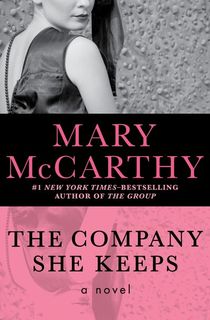
The Company She Keeps
McCarthy’s debut thrust her into the spotlight of the nation’s literary scene and contains one of her most famous pieces of writing, “The Man in the Brooks Brothers Shirt.” Made up of several short stories, all featuring the same protagonist – Margaret Sargent, patterned on McCarthy herself – this fragmentary novel showcases a young woman whose life is suffused with the bohemian energy of the New York art scene in the years before World War II.
Told across six episodes, this scintillating book showcases an unforgettable lead character – and introduces a writer who will shape American thought and letters for years to come.
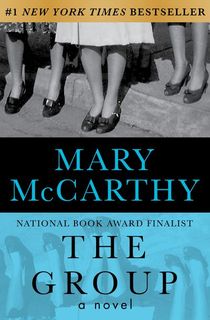
The Group
Probably McCarthy’s best-known novel, The Group hit the New York Times Best Seller list when it was released in 1963 and stayed there for nearly two full years. In 1966, director Sidney Lumet released a film adapted from the novel, starring Candice Bergen, Elizabeth Hartman, Joan Hackett, Hal Holbrook, and others. Decades later, the novel inspired Candace Bushnell to write Sex and the City.
Banned in Australia, Ireland, and Italy, Mary McCarthy's book touched upon a variety of controversial topics for the time, including lesbianism, abortion, contraception, and more as it chronicled the post-graduate lives of eight wealthy women who had been school friends during their time at Vassar College, deftly mixing autobiographical details from McCarthy’s own life with social satire and observations about the role of women in a society that was radically changing.
Related: Gloria Steinem on the Many Reasons to Read The Group
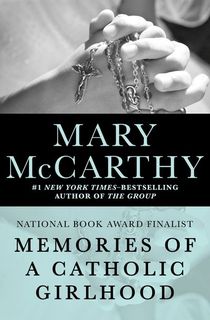
Memories of a Catholic Girlhood
While much of Mary McCarthy’s fiction is autobiographical, fiction is far from all she wrote. In this funny, honest, and unsparing memoir, she strips aside the veils of fiction to tell the story of her own girlhood – or does she?
While Memories of a Catholic Girlhood is without the trappings of fiction, McCarthy nonetheless makes it clear that what you’re reading may not be wholly reliable as we are, after all, all of us beholden to the vicissitudes of what we actually remember, which may not be exactly how things really happened.
Both in spite of and because of the unreliability of McCarthy’s recollections, this one-of-a-kid memoir, originally published in a series of essays in the New Yorker and Harper’s Bazaar, not only gives us greater insight into the author herself, but into the nature of memory and how it affects who we are.
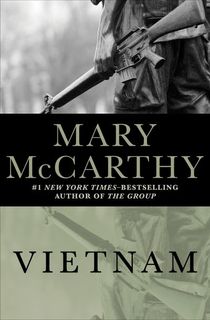
Vietnam
As much as Mary McCarthy was known as an author and critic, she was also an outspoken political activist – and there were few subjects about which she was more impassioned than America’s war in Vietnam.
In 1967, she was sent by the New York Review of Books to Saigon and Hanoi to cover the conflict, and the results of her numerous notes is this scathing indictment of the war, which the New York Times called “the most provocative and disturbing” book of its kind.
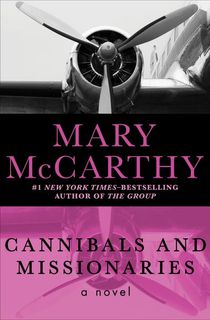
Cannibals and Missionaries
Initially published in 1979, few books showcase the breadth of McCarthy’s talents better than comparing Cannibals and Missionaries to the titles that have preceded it on this list. Rather than a semi-autobiographical piece about privileged intellectuals, this thriller novel, which focuses on the “psychology of terrorism,” details the events following a hijacking of an Air France plane.
“The thrills arise not from the threat of violence or the promise of tawdry sex,” writes Diane Cole in The Georgia Review, “but with the pleasure taken in the author’s intellect and sense of language.” Even a negative review from Kirkus Reviews calls out McCarthy’s “ironic meditation, socio-political skepticism, and elegant misanthropy.”
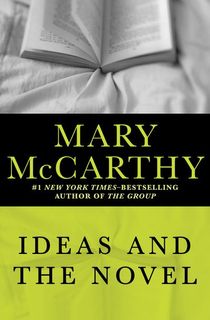
Ideas and the Novel
McCarthy may have attained her greatest fame as a novelist herself, but she was equally revered as a critic, and one of her best pieces of literary criticism is this unforgettable love letter to the novel-as-form, which traces the evolution of one of our most common forms of literary storytelling over the last century. In so doing, she provides insightful readings of authors from Victor Hugo to Stendhal, D. H. Lawrence to Balzac.
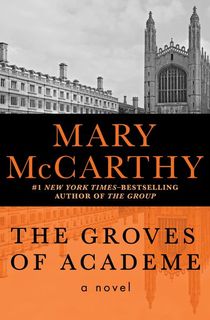
The Groves of Academe
As the Cold War raged in the United States, Mary McCarthy’s biting satire The Groves of Academe showcases a much more petty conflict, being fought within the walls of institutions of higher learning. The acerbically humorous book is focused on Henry Mulcahy, a professor of literature, as he embarks upon a fanatical quest to find out who engineered his dismissal from his tenure, and how he can exact his revenge.
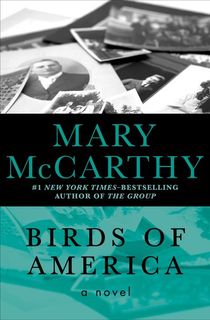
Birds of America
This “endlessly fascinating novel” (San Francisco Chronicle) charts the coming-of-age of a young American student and bird watcher who is studying at the Sorbonne in Paris in 1964. As much as it is about one man’s journey from childhood to adulthood, it’s also a portrait of a world that was on the cusp of radical change – about the way the 1960s shaped global politics and individual lives.
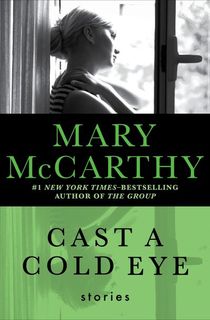
Cast a Cold Eye
Mary McCarthy’s novels may have earned her international attention, but before then she had published several acclaimed short stories.
In this collection of seven of her best tales, she shows why she was renowned as “a brilliant writer with a rare talent for corrosive satire” (The Atlantic Monthly), across stories that are at once autobiographical and fanciful, detailing families, individuals, and even places at the crossroads of change.
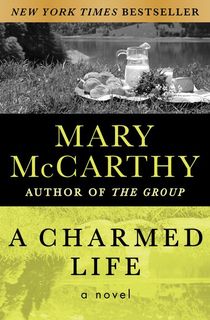
A Charmed Life
A former actress and budding playwright returns to the artist colony of her youth with ultimately disastrous results in this New York Times bestseller, which shows why the Times called McCarthy a writer with “an icily honest eye and a glacial wit that makes her portraits stingingly memorable.”
Hoping to recapture something of the life she left behind, Martha Sinnott finds the past both familiar and disappointing in this unforgettable novel.
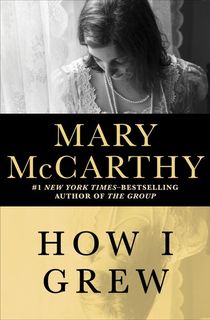
How I Grew
Orphaned at age six, when her parents died in the Spanish Flu epidemic of 1918, Mary McCarthy wrote that it wasn’t until age 13 that she was “born as a mind.”
In this formative coming-of-age memoir, McCarthy describes those vital years between 13 and 18, detailing abuse at the hands of overbearing relatives, a wild adolescence, early sexual relationships, and her eventual flight to the halls of higher learning at Vassar, where her most famous works of fiction would be set.
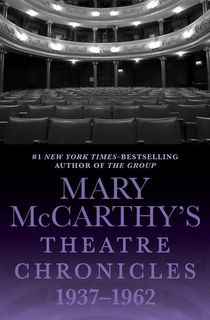
Mary McCarthy's Theatre Chronicles, 1937–1962
McCarthy’s work as a literary critic spanned forms and genres, but was seldom more vital than when she was writing about the theater.
In this collection of provocative and controversial essays, she brings the American theater of her time to vivid life, while also providing scathing opinions on everything from Oscar Wilde to Shakespeare, Tennessee Williams to Arthur Miller to the American school of realism in acting as epitomized by the stage work of Marlon Brando.
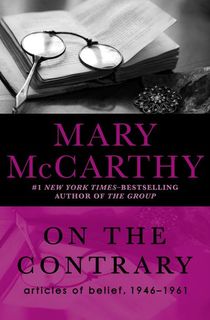
On the Contrary
Love her or hate her, Mary McCarthy’s friends and enemies alike would have likely described her as “highly opinionated.”
And in these diverse, acerbic, and often insightful essays, she serves up her opinions on a wide array of topics, from America itself to religion, sex, and the human condition. The only things in this book that are more provocative than titles like “The Contagion of Ideas” or “Tyranny of the Orgasm” are the essays that accompany them.
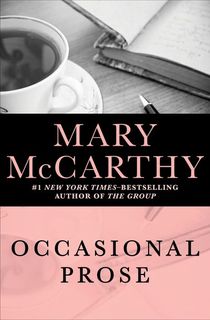
Occasional Prose
McCarthy brings her novelist’s eye to the field of nonfiction in this collection of essays, which cover everything from gardening to romance to a retelling of a famous opera in her own words.
Sometimes, her topics are as grandiose as the difference between American and European novels, while other times they are as intimate as revisiting a favorite book after many years. Whatever she’s writing about, she brings the wit and insight for which she is so well known.
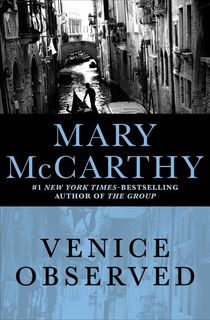
Venice Observed
If there’s one thing that comes up again and again when writing about Mary McCarthy it’s that, whatever form of literature she put her hand to, she left her unique mark.
Thus, travel writing by McCarthy may not bear much resemblance to the travel writing that we’re used to, which is what makes her Venice Observed a classic of the form. Neither guide nor memoir, Venice Observed is, instead, a living, breathing portrait of “the world’s loveliest city.”
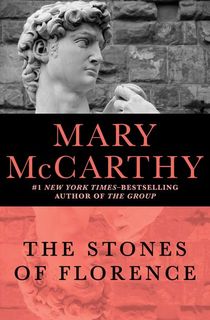
The Stones of Florence
As she did in Venice Observed, McCarthy combines travel writing with history, criticism, and more in her ode to Florence, the “provincial sister” to Venice, which McCarthy nevertheless loves with a passion that pours through in her writing.
From the roots of the Renaissance to the bustling streets of the present day, from broad strokes to specific details, The Stones of Florence paints a picture of a city as vividly realized as it is lovingly portrayed.
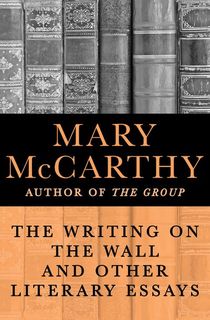
The Writing on the Wall
This far-ranging summary captures the mind of one of America’s most independent thinkers on a vast array of literary classics, from Madame Bovary to Macbeth, Nabokov to Burroughs to Salinger and beyond. Collected together, these approachable and often amusing essays provide a formidable foundation of literary theory from one of the most notable critics of her generation, all in one place and all waiting for readers to explore.
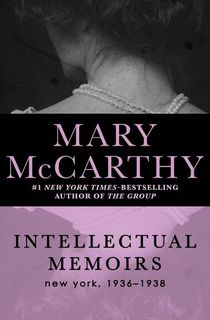
Intellectual Memoirs
Along with Memories of a Catholic Girlhood and How I Grew, Intellectual Memoirs forms a triptych of the life of Mary McCarthy – at least, as she remembers it.
Beginning when she is 24 years old but written when she was in her 70s, this far-ranging memoir chronicles many of the most formative events in her life, while also providing a vivid snapshot of a changing world. Uncompleted at the time of her death in 1989 and published posthumously, this riveting book is the perfect place to end a list about one of America’s most fascinating writers.
